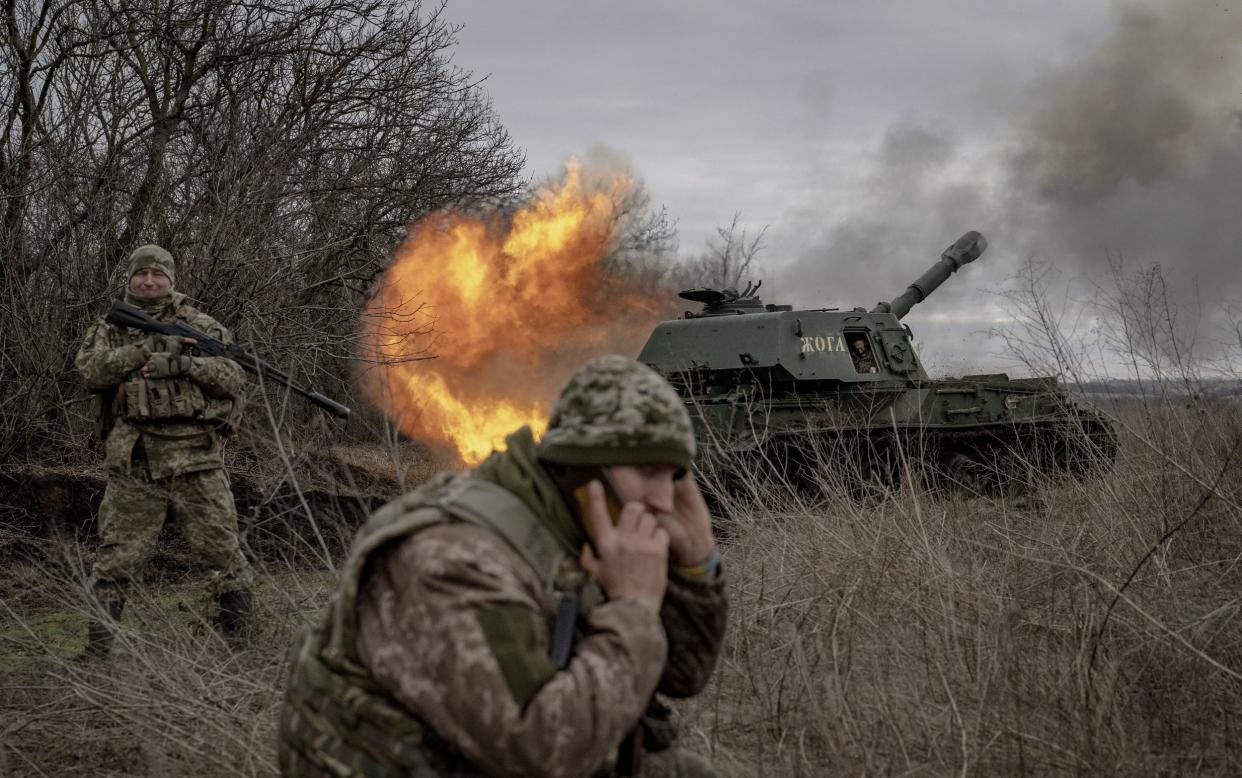Ukraine’s new year may end with a brutal Western betrayal

Ukraine entered 2023 filled with hope. Its forces had just secured enormous battlefield and strategic victories, first at Kherson and then Kharkiv, recapturing much lost territory from the Russian invaders, and Western capitals seemed increasingly confident that victory could be at hand.
By the end of January, European and American leaders were no longer talking about whether to send Western main battle tanks, but how many and when. Britain led the charge, confirming that the formidable Challenger II would be sent to Ukraine, and putting intense diplomatic pressure on Washington and Berlin to follow London’s lead. Both duly buckled. With tanks secured, hopes were high for the coming counter-offensive.
The mood in 2024 is very different. The counter-offensive failed to deliver a decisive blow to Putin’s forces in the south. Russia’s economy has withstood Western sanctions, rapidly militarising to provide an ongoing stream of munitions to the front. Ukraine, meanwhile, is undergoing one of the largest aerial bombardments since the war began, and its united front is beginning to fray as conscription takes its toll.
Only a few short months ago, the stoic Ukrainian defenders were heralded by the West as defenders of the liberal values and freedoms we enjoy. Today, Western governments are now beginning to signal a lack of patience, and with it a lack of military and economic support to Kyiv.
To turn our backs now on the Ukrainian people, so swiftly after months of brutal fighting, is morally bankrupt and strategically negligent.
It is understandable, if not forgivable, that governments have begun questioning their levels of commitment to a deeply destructive war with no end in sight. At best there now appears to be a likely short to medium term stalemate across much of the 1,000 kilometre front line.
Meanwhile, Western economies and budgets are still grappling with recovery from the pandemic and last year’s energy shock. Global supply chains are still in flux, and as the Middle East flares up the Houthis are increasingly able to dictate the terms of trade and passage in the Red Sea, delivering another blow to a fragile global economy.
And the proverbial elephant in the Ukraine war room – a Republican administration potentially returning to the White House in twelve months-time – raises the spectre of a sudden stop to American funding. Even the current Biden administration has struggled with a mutinous Congress. In the EU, meanwhile, Viktor Orbán has been blocking the transfer of funds.
Together, these paint a bleak picture. The failed Ukrainian offensive, a stalemate across much of the front, a resurgent Russian state, and Western attention drifting away. Despite incremental military gains, Kyiv is in a far bleaker position than it was this time last year.
The situation is not hopeless. Ukraine is working to boost domestic production of weapons, reducing its reliance on the West. The seasonal change is marginally in its favour; it will be able to reinforce, defend and consolidate the territorial gains made in the last 12 months, while Russia struggles to make advances. And, of course, tens of thousands of Ukrainian soldiers have received training overseas. Ukraine can use the lull in combat operations to work these units into coherent battalion and brigade formations – a noted operational weakness in previous offensives.
Moscow is preparing to allocate a full third of government spending to its war efforts. Kyiv will not win a war based on ‘out-shelling’ the Russians. Instead, it should prioritise air defence systems and counter-batteries, make the case for increased artillery from European stocks, and hold on to the ground it’s retaken.
If it can, Russia may find that attrition stops working in its favour. While it is out-producing Ukraine and the EU, its economy is increasingly focused on its war effort. Putin is banking on Western resolve breaking before Russia does. If we stand firm, we can deny him victory – and end his murderous regime. Otherwise, a Russian victory beckons, ending 2024 not only with the death of Ukrainian independence, but of any hope of European sovereignty.

